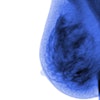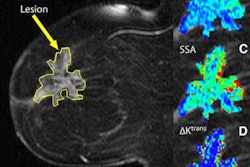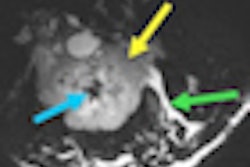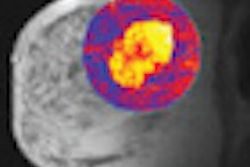
California Gov. Jerry Brown has vetoed legislation that would have required women with dense breast tissue to be informed of their status. The move is a setback for the breast density awareness movement, which has already recorded victories in Connecticut and Texas and has legislation pending in other states.
Senate Bill 791 (formerly SB 173) would have required that women with dense breast tissue be notified of that fact following a mammogram, as well as to the fact that dense breast tissue can hide abnormalities on a mammogram. The legislation would have advised that women with dense breast tissue might wish to discuss additional screening with their doctors.
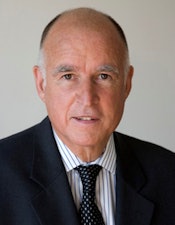 California Gov. Jerry Brown.
California Gov. Jerry Brown.
In rejecting the proposed law, Brown said that while he supported the concept of giving patients more information about their health, the wording of SB 791 went too far by advising that additional screening might be beneficial.
"If the state must mandate a notice about breast density -- and I am not certain it should -- such a notice must be more carefully crafted, with words that educate more than they prescribe," Brown said in an October 9 statement.
Requirements for radiologists
Under the bill, radiologists would have been required to include the following two additional sentences in the letter they must send to patients after a mammogram, as already required by the federal Mammography Quality Standards Act (MQSA):
Because your mammogram demonstrates that you have dense breast tissue, which could hide small abnormalities, you might benefit from supplementary screening tests, depending on your individual risk factors. A report of your mammography results, which contains information about your breast density, has been sent to your physician's office and you should contact your physician if you have any questions or concerns about this notice.
Healthcare professionals were conflicted about the legislation. The California Radiological Society (CRS) took a neutral position on the bill, and expressed reservations about its potential impact on workflow. Ultrasound is the most commonly used adjunctive imaging modality for women with dense breast tissue, but ultrasound exams take 40 to 60 minutes to perform, said Bob Achermann, executive director of the California Radiological Society.
Achermann also noted that the legislation could have created a financial hardship for women, due to the removal of a provision that required insurers to pay for any additional screening. The final version as vetoed by Brown would have forced women to pay for additional tests out of pocket.
Ultimately, the CRS believes that Brown's veto does not mean the end of the debate over breast density in California.
"The issues in this bill were complex and raised concerns about the likely impact of this notice on additional screening for women with dense breast tissue," Achermann said. "The CRS ultimately moved to a neutral position on the bill, and we think it likely that the author will attempt to fashion a new bill in light of the governor's veto."For its part, the California Medical Association (CMA) in June released a statement about the pending bill, saying that while the intent of the legislation was to give women more power and control over their health by providing them with more information, the legislation was vague and would impose undue cost burdens on the patient.
"Because high breast density is not currently by itself a risk factor for cancer in medical guidelines, in cases where prior authorization is required for additional screening, the tests may not be covered," the CMA said. "Affluent women will be able to pay out-of-pocket if they choose, but lower income women might not have the option to be able to afford $300 for an ultrasound and $1,700 for an MRI."
Proponents of the legislation cited the opposition of organized medicine as one of the factors behind Brown's veto.
"The bill received relentless opposition from medical organizations who fought hard to kill the bill, and were successful in lobbying the governor to use his veto power to defeat it," said Nancy Cappello, PhD, founder of Are You Dense, an organization that urges women to be informed about dense breast tissue and how it affects the early detection of breast cancer.
Cappello's group has vowed to move forward despite the setback in California. A federal bill (HR 3102) was introduced in Congress last week, and four states -- Kansas, Ohio, New Hampshire, New York, Virginia, and Pennsylvania -- have breast density notification legislative efforts on tap for 2012.
"The veto of this bill means [California] women will still have to rely upon luck to find out about their dense breast tissue, as breast density is the single most [important] predictor of the failure of mammography to find cancer, and one of the highest risk factors for breast cancer," Cappello said.


